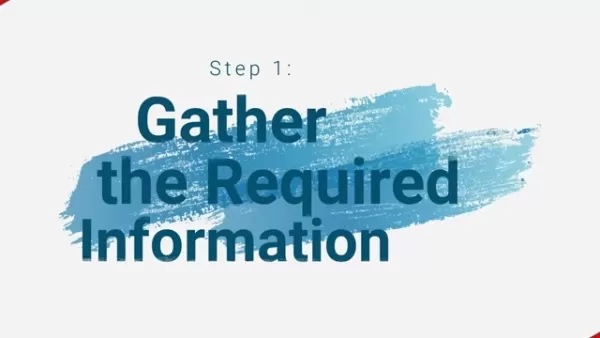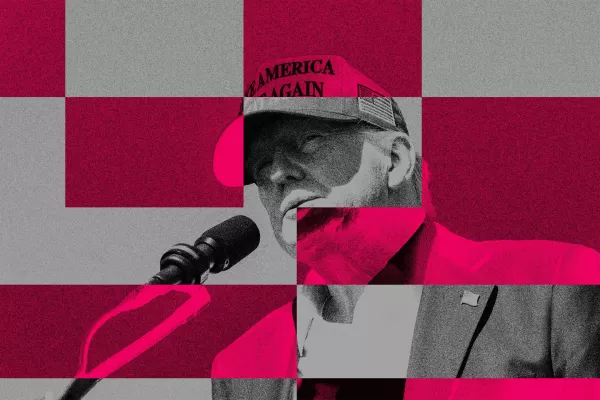AI Music and Drake's Diss Track: A Deep Dive into the Controversy
The music industry is always on the move, and the rise of AI-generated music has stirred up quite the debate. In this article, we'll dive into the controversy surrounding Drake's recent diss track aimed at Kendrick Lamar, which made use of AI to mimic the voices of Tupac and Snoop Dogg. We'll explore the ethical questions this raises, the potential effects on artists, and what the future might hold for creativity in an increasingly tech-driven world.
The Drake AI Music Controversy: A Deep Dive
The Taylor Made Freestyle Diss Track
Drake, a heavyweight in the hip-hop scene, dropped a diss track called "Taylor Made Freestyle" targeted at Kendrick Lamar. This release didn't just make waves—it caused a tsunami of controversy, primarily because it used Artificial Intelligence (AI) to replicate the voices of legends Tupac Shakur and Snoop Dogg.

While diss tracks are nothing new in rap, using AI to bring back the voices of iconic, and in Tupac's case, deceased artists, felt like a step too far for many. It wasn't just about the diss; it was about the method. The AI-generated vocals sparked a sense of unease and disrespect, leaving people questioning the ethics and value of such a move. Now, Drake's team is dealing with the fallout.
What is AI Music?
AI music involves music that's created, composed, or performed with AI's help. This can include:
- AI-assisted composition: AI algorithms can craft melodies, harmonies, and rhythms based on specific inputs and data. It's like having a super-smart assistant for composers, helping them explore new sounds.
- AI-powered performance: AI can control virtual instruments, producing realistic or stylized musical performances.
- Voice cloning and synthesis: This is where it gets tricky, as seen with Drake's track. AI can mimic a person's voice, raising big questions about the implications, especially for deceased artists or potential misuse. The ability to manipulate existing music from artists like Taylor Swift is reshaping the industry.
AI opens up exciting avenues for music creation but also brings concerns about authenticity, intellectual property, and the human touch in music production. These issues are amplified by debates over copyright and the future of human creativity.
Ethical Implications of Using AI in Music
The ethical questions around AI in music, especially voice cloning, are deep and multifaceted. Here are some key points:
- Artist consent and control: Should AI be allowed to use an artist's voice without their consent? Control over one's voice and image is crucial.
- Copyright and intellectual property: If AI generates music from existing works, who owns the copyright? Is it the AI developer, the user, or the original artist?
- Authenticity and artistic value: Does AI-generated music lessen the value of human-created music? Is it art or just a tech trick? The emotional connection to music might suffer without the human element.
- Transparency and disclosure: Should AI-generated music be labeled as such? Transparency helps inform listeners about the creative process and avoids deception. Many musicians want a clear line between human and AI contributions.

The Debate Surrounding Ghostwriting Allegations
Talking about Drake's AI diss track brings up old debates about ghostwriting accusations that have followed him. The use of uncredited songwriters raises questions about authenticity and credit. While collaboration is common, when the main performer's creative input is seen as lacking or unacknowledged, it can impact how their artistry is perceived. The core issue is whether top music creators are truly writing their own lyrics.
AI Music: Opportunities and Challenges
Opportunities for Innovation
Despite the controversies, AI offers several exciting opportunities for the music industry:
- Accessibility for aspiring artists: AI tools can make music creation more accessible, allowing newcomers to experiment without formal training or expensive gear.
- Enhanced creativity: AI can act as a creative partner, helping artists explore new sounds and push musical boundaries.
- Personalized music experiences: AI can tailor music playlists and soundtracks to individual tastes and activities.
- New business models: AI can open up new revenue streams through licensing, subscriptions, and other innovative monetization strategies.
Challenges and Potential Pitfalls
However, the rise of AI music also brings significant challenges:
- Job displacement: AI might automate parts of music production, potentially displacing human composers, musicians, and producers.
- Market saturation: Easy AI-generated music could flood the market, making it tough for talented artists to stand out.
- Devaluation of human skill: If AI can mimic human creativity, it might reduce the value placed on traditional musical skills.
- Potential for misuse and manipulation: AI can create deepfakes of artists' voices, generate unauthorized content, and spread misinformation through music.
Harnessing the Power of AI Music Creation
Choosing the Right AI Music Tools
The market is full of AI music creation tools, and picking the right one can be tricky. Consider these factors:
- Ease of use: Look for tools with user-friendly interfaces, even if you're tech-savvy.
- Features: Different tools offer various strengths, from composition to voice cloning.
- Cost: Products often have different pricing tiers, so ensure the investment matches the value.
Using AI Music Responsibly
Remember, AI is just a tool. Its impact depends on how you use it:
- Get permission: Use AI to enhance your craft, not to steal another artist's identity.
- Give credit: Acknowledge other artists if you collaborate with them.
- Keep your signature: Use AI to boost your creativity, not replace it.
- Be professional: Don't use AI just to stir up trouble with diss tracks.
Evaluating AI Music Platform Costs
Understanding the Cost of AI Music Tools
The cost of AI music tools varies based on features and complexity:
- Free trial: Some platforms offer free trials, so test them to see if they meet your needs.
- Subscription Plans: Many services have subscription models ranging from beginner to expert levels.
- One-Time Purchase: More complex systems might require a one-time setup cost plus annual maintenance fees.
Diving Into the Upsides and Downsides
Pros
- AI makes music creation easier than ever.
- AI can help musicians produce and master songs more efficiently.
- AI can assist musicians in finding their unique sound.
Cons
- It may harm the careers of many musicians.
- It can steal creativity from working musicians.
- It can create legal issues for all parties involved.
What to Look for in AI Music Software
Desired AI Tool Features
Different artists will need different features for their projects:
- Voice Cloning: Ensure the voice cloning feature matches your brand's tone, key, and sound.
- Composing: Check if the tool can compose music with adjustable parameters.
- Legal Compliance: Verify if the AI music software provides legal guidelines.
How Musicians are Using AI Music Tools Today
AI in the Music World

The use of AI in music is diverse:
- New Artists: Those with limited musical skills can now produce better music than ever before.
- Producers: Professional producers can save countless hours by using AI to streamline songwriting and production.
Frequently Asked Questions (FAQ)
What is the Drake AI music controversy about?
The controversy centers on Drake's use of AI to mimic the voices of Tupac and Snoop Dogg in a diss track against Kendrick Lamar, raising ethical questions about impersonating artists, especially those who are deceased.
Is AI music going to replace human artists?
It's unlikely that AI will completely replace human artists. Instead, AI is more likely to become a tool that assists human musicians in their creative process.
What are the legal considerations surrounding AI music?
Copyright infringement and intellectual property rights are major concerns. It's essential to obtain proper licenses and permissions when using AI to create music that incorporates elements of existing copyrighted works.
Related Questions
How does AI create music?
AI music creation involves complex algorithms and machine learning techniques. AI systems are trained on vast datasets of music, allowing them to recognize patterns, styles, and structures. They can then generate new musical compositions based on these patterns or manipulate existing recordings, as seen in Drake's diss track. AI technology is constantly advancing, leading to more sophisticated and realistic AI-generated music. It can even recreate images, as seen on websites like DALL-E, Craiyon, and MidJourney. AI is the future, and more people will use it for various activities and reasons. While the long-term effects are still unknown, expect more instances like this moving forward!
Related article
 Master Emerald Kaizo Nuzlocke: Ultimate Survival & Strategy Guide
Emerald Kaizo stands as one of the most formidable Pokémon ROM hacks ever conceived. While attempting a Nuzlocke run exponentially increases the challenge, victory remains achievable through meticulous planning and strategic execution. This definitiv
Master Emerald Kaizo Nuzlocke: Ultimate Survival & Strategy Guide
Emerald Kaizo stands as one of the most formidable Pokémon ROM hacks ever conceived. While attempting a Nuzlocke run exponentially increases the challenge, victory remains achievable through meticulous planning and strategic execution. This definitiv
 AI-Powered Cover Letters: Expert Guide for Journal Submissions
In today's competitive academic publishing environment, crafting an effective cover letter can make the crucial difference in your manuscript's acceptance. Discover how AI-powered tools like ChatGPT can streamline this essential task, helping you cre
AI-Powered Cover Letters: Expert Guide for Journal Submissions
In today's competitive academic publishing environment, crafting an effective cover letter can make the crucial difference in your manuscript's acceptance. Discover how AI-powered tools like ChatGPT can streamline this essential task, helping you cre
 US to Sanction Foreign Officials Over Social Media Regulations
US Takes Stand Against Global Digital Content Regulations
The State Department issued a sharp diplomatic rebuke this week targeting European digital governance policies, signaling escalating tensions over control of online platforms. Secretary Marco
Comments (4)
0/200
US to Sanction Foreign Officials Over Social Media Regulations
US Takes Stand Against Global Digital Content Regulations
The State Department issued a sharp diplomatic rebuke this week targeting European digital governance policies, signaling escalating tensions over control of online platforms. Secretary Marco
Comments (4)
0/200
![ChristopherDavis]() ChristopherDavis
ChristopherDavis
 September 27, 2025 at 8:30:31 AM EDT
September 27, 2025 at 8:30:31 AM EDT
C'est fascinant de voir comment l'IA bouleverse l'industrie musicale ! Mais utiliser des voix d'artistes décédés comme Tupac... ça pose de vraies questions éthiques. Où trace-t-on la limite ? 🎵😕


 0
0
![MatthewTaylor]() MatthewTaylor
MatthewTaylor
 August 27, 2025 at 3:01:35 PM EDT
August 27, 2025 at 3:01:35 PM EDT
Yo, AI mimicking Tupac and Snoop in Drake's diss track? That's wild! It’s like tech’s playing puppet master with legends’ voices. Super cool but kinda creepy too—where’s the line on this AI music stuff? 🤔


 0
0
![DouglasMartin]() DouglasMartin
DouglasMartin
 August 21, 2025 at 5:01:16 AM EDT
August 21, 2025 at 5:01:16 AM EDT
This AI music stuff with Drake’s diss track is wild! Using Tupac and Snoop’s voices? That’s next-level, but kinda creepy too. Is this the future of music or just a gimmick? 🤔


 0
0
![BillyYoung]() BillyYoung
BillyYoung
 August 16, 2025 at 9:00:59 PM EDT
August 16, 2025 at 9:00:59 PM EDT
AI music is wild! Drake using Tupac’s voice via AI for a diss track is bold, but is it ethical? Feels like a sci-fi movie gone wrong. 🤔


 0
0
The music industry is always on the move, and the rise of AI-generated music has stirred up quite the debate. In this article, we'll dive into the controversy surrounding Drake's recent diss track aimed at Kendrick Lamar, which made use of AI to mimic the voices of Tupac and Snoop Dogg. We'll explore the ethical questions this raises, the potential effects on artists, and what the future might hold for creativity in an increasingly tech-driven world.
The Drake AI Music Controversy: A Deep Dive
The Taylor Made Freestyle Diss Track
Drake, a heavyweight in the hip-hop scene, dropped a diss track called "Taylor Made Freestyle" targeted at Kendrick Lamar. This release didn't just make waves—it caused a tsunami of controversy, primarily because it used Artificial Intelligence (AI) to replicate the voices of legends Tupac Shakur and Snoop Dogg.

While diss tracks are nothing new in rap, using AI to bring back the voices of iconic, and in Tupac's case, deceased artists, felt like a step too far for many. It wasn't just about the diss; it was about the method. The AI-generated vocals sparked a sense of unease and disrespect, leaving people questioning the ethics and value of such a move. Now, Drake's team is dealing with the fallout.
What is AI Music?
AI music involves music that's created, composed, or performed with AI's help. This can include:
- AI-assisted composition: AI algorithms can craft melodies, harmonies, and rhythms based on specific inputs and data. It's like having a super-smart assistant for composers, helping them explore new sounds.
- AI-powered performance: AI can control virtual instruments, producing realistic or stylized musical performances.
- Voice cloning and synthesis: This is where it gets tricky, as seen with Drake's track. AI can mimic a person's voice, raising big questions about the implications, especially for deceased artists or potential misuse. The ability to manipulate existing music from artists like Taylor Swift is reshaping the industry.
AI opens up exciting avenues for music creation but also brings concerns about authenticity, intellectual property, and the human touch in music production. These issues are amplified by debates over copyright and the future of human creativity.
Ethical Implications of Using AI in Music
The ethical questions around AI in music, especially voice cloning, are deep and multifaceted. Here are some key points:
- Artist consent and control: Should AI be allowed to use an artist's voice without their consent? Control over one's voice and image is crucial.
- Copyright and intellectual property: If AI generates music from existing works, who owns the copyright? Is it the AI developer, the user, or the original artist?
- Authenticity and artistic value: Does AI-generated music lessen the value of human-created music? Is it art or just a tech trick? The emotional connection to music might suffer without the human element.
- Transparency and disclosure: Should AI-generated music be labeled as such? Transparency helps inform listeners about the creative process and avoids deception. Many musicians want a clear line between human and AI contributions.

The Debate Surrounding Ghostwriting Allegations
Talking about Drake's AI diss track brings up old debates about ghostwriting accusations that have followed him. The use of uncredited songwriters raises questions about authenticity and credit. While collaboration is common, when the main performer's creative input is seen as lacking or unacknowledged, it can impact how their artistry is perceived. The core issue is whether top music creators are truly writing their own lyrics.
AI Music: Opportunities and Challenges
Opportunities for Innovation
Despite the controversies, AI offers several exciting opportunities for the music industry:
- Accessibility for aspiring artists: AI tools can make music creation more accessible, allowing newcomers to experiment without formal training or expensive gear.
- Enhanced creativity: AI can act as a creative partner, helping artists explore new sounds and push musical boundaries.
- Personalized music experiences: AI can tailor music playlists and soundtracks to individual tastes and activities.
- New business models: AI can open up new revenue streams through licensing, subscriptions, and other innovative monetization strategies.
Challenges and Potential Pitfalls
However, the rise of AI music also brings significant challenges:
- Job displacement: AI might automate parts of music production, potentially displacing human composers, musicians, and producers.
- Market saturation: Easy AI-generated music could flood the market, making it tough for talented artists to stand out.
- Devaluation of human skill: If AI can mimic human creativity, it might reduce the value placed on traditional musical skills.
- Potential for misuse and manipulation: AI can create deepfakes of artists' voices, generate unauthorized content, and spread misinformation through music.
Harnessing the Power of AI Music Creation
Choosing the Right AI Music Tools
The market is full of AI music creation tools, and picking the right one can be tricky. Consider these factors:
- Ease of use: Look for tools with user-friendly interfaces, even if you're tech-savvy.
- Features: Different tools offer various strengths, from composition to voice cloning.
- Cost: Products often have different pricing tiers, so ensure the investment matches the value.
Using AI Music Responsibly
Remember, AI is just a tool. Its impact depends on how you use it:
- Get permission: Use AI to enhance your craft, not to steal another artist's identity.
- Give credit: Acknowledge other artists if you collaborate with them.
- Keep your signature: Use AI to boost your creativity, not replace it.
- Be professional: Don't use AI just to stir up trouble with diss tracks.
Evaluating AI Music Platform Costs
Understanding the Cost of AI Music Tools
The cost of AI music tools varies based on features and complexity:
- Free trial: Some platforms offer free trials, so test them to see if they meet your needs.
- Subscription Plans: Many services have subscription models ranging from beginner to expert levels.
- One-Time Purchase: More complex systems might require a one-time setup cost plus annual maintenance fees.
Diving Into the Upsides and Downsides
Pros
- AI makes music creation easier than ever.
- AI can help musicians produce and master songs more efficiently.
- AI can assist musicians in finding their unique sound.
Cons
- It may harm the careers of many musicians.
- It can steal creativity from working musicians.
- It can create legal issues for all parties involved.
What to Look for in AI Music Software
Desired AI Tool Features
Different artists will need different features for their projects:
- Voice Cloning: Ensure the voice cloning feature matches your brand's tone, key, and sound.
- Composing: Check if the tool can compose music with adjustable parameters.
- Legal Compliance: Verify if the AI music software provides legal guidelines.
How Musicians are Using AI Music Tools Today
AI in the Music World

The use of AI in music is diverse:
- New Artists: Those with limited musical skills can now produce better music than ever before.
- Producers: Professional producers can save countless hours by using AI to streamline songwriting and production.
Frequently Asked Questions (FAQ)
What is the Drake AI music controversy about?
The controversy centers on Drake's use of AI to mimic the voices of Tupac and Snoop Dogg in a diss track against Kendrick Lamar, raising ethical questions about impersonating artists, especially those who are deceased.
Is AI music going to replace human artists?
It's unlikely that AI will completely replace human artists. Instead, AI is more likely to become a tool that assists human musicians in their creative process.
What are the legal considerations surrounding AI music?
Copyright infringement and intellectual property rights are major concerns. It's essential to obtain proper licenses and permissions when using AI to create music that incorporates elements of existing copyrighted works.
Related Questions
How does AI create music?
AI music creation involves complex algorithms and machine learning techniques. AI systems are trained on vast datasets of music, allowing them to recognize patterns, styles, and structures. They can then generate new musical compositions based on these patterns or manipulate existing recordings, as seen in Drake's diss track. AI technology is constantly advancing, leading to more sophisticated and realistic AI-generated music. It can even recreate images, as seen on websites like DALL-E, Craiyon, and MidJourney. AI is the future, and more people will use it for various activities and reasons. While the long-term effects are still unknown, expect more instances like this moving forward!
 Master Emerald Kaizo Nuzlocke: Ultimate Survival & Strategy Guide
Emerald Kaizo stands as one of the most formidable Pokémon ROM hacks ever conceived. While attempting a Nuzlocke run exponentially increases the challenge, victory remains achievable through meticulous planning and strategic execution. This definitiv
Master Emerald Kaizo Nuzlocke: Ultimate Survival & Strategy Guide
Emerald Kaizo stands as one of the most formidable Pokémon ROM hacks ever conceived. While attempting a Nuzlocke run exponentially increases the challenge, victory remains achievable through meticulous planning and strategic execution. This definitiv
 AI-Powered Cover Letters: Expert Guide for Journal Submissions
In today's competitive academic publishing environment, crafting an effective cover letter can make the crucial difference in your manuscript's acceptance. Discover how AI-powered tools like ChatGPT can streamline this essential task, helping you cre
AI-Powered Cover Letters: Expert Guide for Journal Submissions
In today's competitive academic publishing environment, crafting an effective cover letter can make the crucial difference in your manuscript's acceptance. Discover how AI-powered tools like ChatGPT can streamline this essential task, helping you cre
 US to Sanction Foreign Officials Over Social Media Regulations
US Takes Stand Against Global Digital Content Regulations
The State Department issued a sharp diplomatic rebuke this week targeting European digital governance policies, signaling escalating tensions over control of online platforms. Secretary Marco
US to Sanction Foreign Officials Over Social Media Regulations
US Takes Stand Against Global Digital Content Regulations
The State Department issued a sharp diplomatic rebuke this week targeting European digital governance policies, signaling escalating tensions over control of online platforms. Secretary Marco
 September 27, 2025 at 8:30:31 AM EDT
September 27, 2025 at 8:30:31 AM EDT
C'est fascinant de voir comment l'IA bouleverse l'industrie musicale ! Mais utiliser des voix d'artistes décédés comme Tupac... ça pose de vraies questions éthiques. Où trace-t-on la limite ? 🎵😕


 0
0
 August 27, 2025 at 3:01:35 PM EDT
August 27, 2025 at 3:01:35 PM EDT
Yo, AI mimicking Tupac and Snoop in Drake's diss track? That's wild! It’s like tech’s playing puppet master with legends’ voices. Super cool but kinda creepy too—where’s the line on this AI music stuff? 🤔


 0
0
 August 21, 2025 at 5:01:16 AM EDT
August 21, 2025 at 5:01:16 AM EDT
This AI music stuff with Drake’s diss track is wild! Using Tupac and Snoop’s voices? That’s next-level, but kinda creepy too. Is this the future of music or just a gimmick? 🤔


 0
0
 August 16, 2025 at 9:00:59 PM EDT
August 16, 2025 at 9:00:59 PM EDT
AI music is wild! Drake using Tupac’s voice via AI for a diss track is bold, but is it ethical? Feels like a sci-fi movie gone wrong. 🤔


 0
0





























